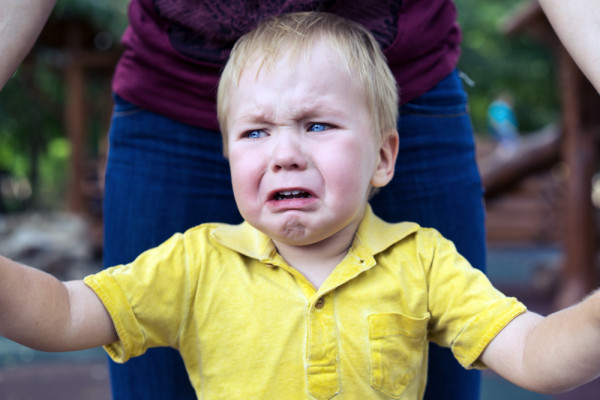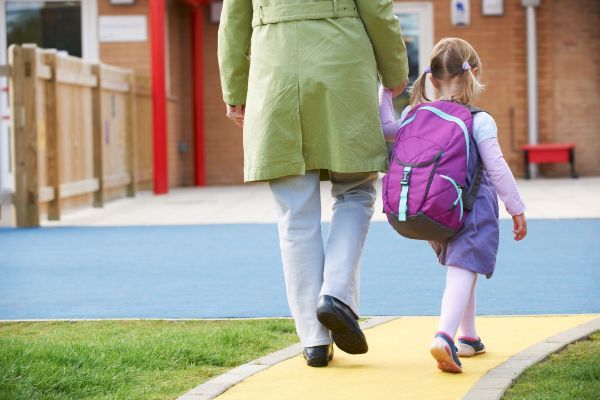
After-school restraint collapse: What is it and how to deal with it
Although every parent hopes that the academic year will go as smoothly as possible, sometimes, things just don’t go as planned.
The phrase ‘after-school restraint collapse’ was coined by psychologist Andrea Loewen Nair in 2016, to describe when a child is perfectly tempered in the classroom, but then releases a wrath of fury as soon as they arrive home from school.
To help make sense of the condition, Andrea suggests that parents should put themselves in their child’s shoes, and think about how you feel “when you force yourself to do everything you need to do, even though it's stuff you don't want to do or stuff that’s boring or tedious.”

According to Andrea, the impact of a strict, regimented routine at school can force children to build up pent-up anger at not being able to freely choose for themselves.
Although psychologists say that this sudden release of frustration can be stressful for parents to deal with, they should remind themselves that it is a natural and healthy thing for their child to do. However, if you are still looking for advice on how to deal with your child’s after-school restraint collapse, then look no further than our top tips:
1. Mentally prepare

Arguably the most important tip! If you’re struggling to cope with your child’s outbursts, then it’s crucial that you mentally prepare yourself before the end of each school day. Remind yourself that these outbursts are healthy for your child’s mental well being. When collecting your child from school, greet them with a warm, inviting hug to create a positive atmosphere. Don’t directly ask them how their day at school was, or how they spent their day. Instead, ask them how they’re feeling, and let them know that you’re here to listen.
2. Give them reassurance

When your child begins to rant to you, the number one thing that they are looking for is reassurance – particularly, reassurance that their frustrated feelings are valid. Your opinion matters most to them, and so it is crucial that your child understands that you recognise their upset, and that you will do anything to help them. Repeating phrases such as, “It’s okay to feel like that” or “I’m always here to listen to you”, wil give them the comfort they crave.
3. Make it homely

After leaving the school gates, the first thing your child will want is comfort, especially if they’ve had a tough day. Their deepest desire is to be greeted with a warm and welcoming household. You can do lots of little things to make your child feel more positive upon returning home, such as making them their favourite meal or putting on their favourite music. Keep things light and airy, proving to your child that home will always be a safe space for them to destress.
4. Encourage activities

A must-do! One of the best ways to help your child through after-school restraint collapse is to give them a distraction. Initiating activities such as going for a walk or playing outside can give your child the breathing space that they need to relax and unwind after the stress of the school day. This will also give them an opportunity to open up to you about their worries and frustrations. While your child is doing the activity, their pent-up anger should lessen and they should be able to speak more calmly to you, as their brain will be more focused on the task at hand.
5. Talk to teachers

If your child is particularly struggling with their behaviour after-school, then it might be worthwhile to request a private meeting with their teacher. This will allow you to explain to them how your child is coping once school finishes for the day. This will also give you an opportunity to ask the teacher how your child is performing in school, and if there is anything that either adult can do to help support your child further. Remember – open communication between all parties is key!
